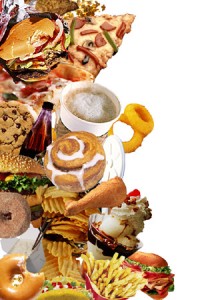The 80s weren’t all bad, thanks to the kid sister who came along.
Mood music: “Nobody Told Me” by John Lennon. I used to sing the “Everybody’s smoking, and no one’s getting high” line to my kid sister, much to her dismay.
[youtube=http://www.youtube.com/watch?v=gBCdlBrgEmE&hl=en_US&fs=1]
I’ve written about a lot of the darker parts of my childhood and teen years and how they factored into an adulthood of mental illness and addiction. But those years were brightened by a particularly strong ray of sunshine. Here’s the story of my kid sister, Shira.
Shira’s 15 years younger than me and was born nearly two years after my brother’s death. I was sick with the flu the day she was born and was also going through a Crohn’s flare up.
To say she brightened the mood at 22 Lynnway would be an understatement. She was an especially adorable baby and was a welcome distraction from everything that was going on at the time.
She’s grown up now and I don’t see her much these days, but last night we got a chance to catch up at my father’s birthday dinner. She was telling me about her current job teaching English and how she wants to use her teaching skills to work more with the disadvantaged. She recently got back from Mexico, where she lived for several months. Before that she lived in South America for quite awhile, teaching the locals.
She’s quite a kid. If not for the big chip on my shoulder, I might have been more like her in my 20s. I’m happy with how my life turned out and believe I had to go through the dark stuff to get here. But Shira has really been an inspiration to me. She crisscrosses the globe without fear and has an easygoing way about her that’s nearly impossible to crack. I know, because I’ve tried.
I’ve always been the teasing sort of brother. I tell everyone who will listen that I remember when I could fit Shira in a beer mug. I remember once, when she was about 4 or 5, she told me to stop teasing.
“I can’t help it,” I said. “I tease you cause I love you.”
“Then don’t love me,” she shot back.
Naturally, I told everyone about that exchange, and with more than a little glee.
Around the same time, I was having a lot of parties in the basement of the Revere house. The morning after, Shira would often make the rounds, stopping at the various friends who would be passed out asleep on my bed, on the couch or on the floor.
Even back then, no matter how much I drank the night before, I would always wake up early so I could sneak cigarettes without being seen.
I’d always enjoyed watching her make the rounds. My guests didn’t always enjoy it, but that was fine with me. 
She brought a lot of joy to a family that was reeling from a string of bad breaks. She brings a lot of joy to the family today.
This post is my little thank you note to her.




